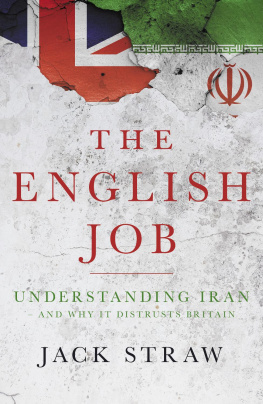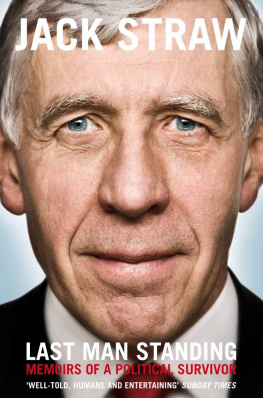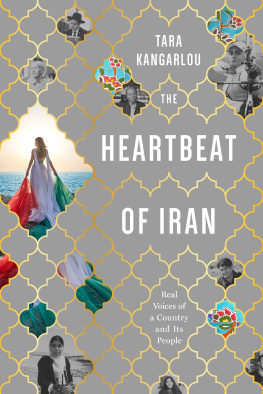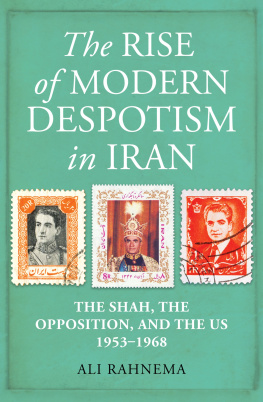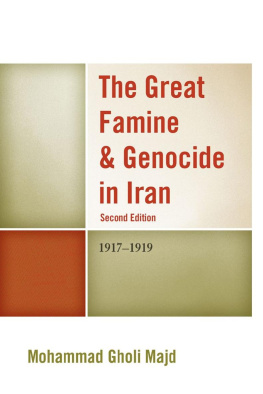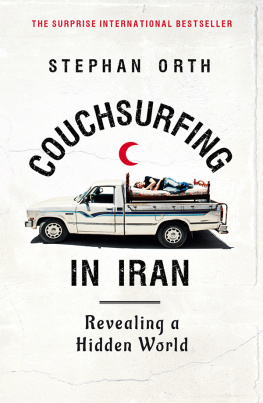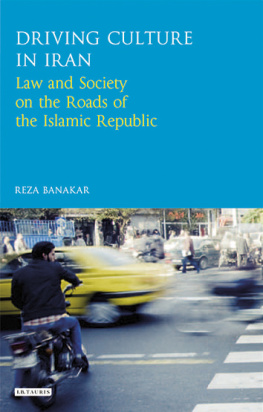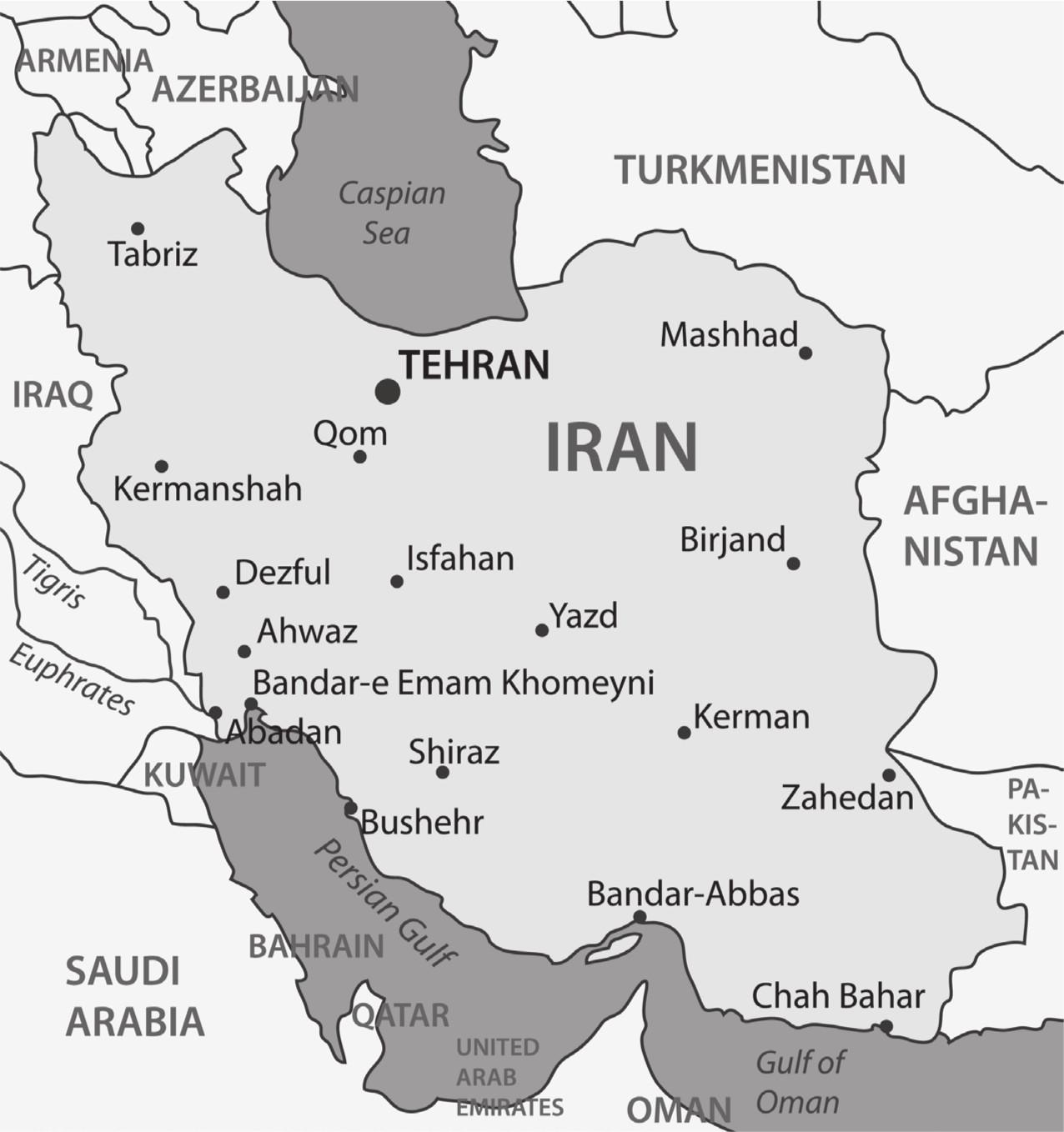For decades, British Foreign Secretaries have wrestled with the great challenges of dealing successfully with Iranian leaders. Jack Straw has gone beyond that to develop the rich understanding of the countrys culture, psychology and history revealed in this book. It will be required reading for anyone who wants to understand how to improve relations with Iran in the coming years, and is an accurate record of the attempts many of us have made to do so.
W ILLIAM H AGUE
Jack Straw was in the frontline of negotiations with Iran. This vivid account links his early diplomatic successes on the nuclear file with the harsh reality of the Iranian system. Iran remains a strategic flashpoint, as the Americans replace diplomacy with sanctions. Jacks book is essential reading for those with a thirst for deeper understanding of the Middle Easts most complex and fascinating nation.
S IR J OHN S AWERS, CHIEF OF THE S ECRET I NTELLIGENCE S ERVICE 20092014
A book that is both highly readable and refreshingly personal. Jack Straws analysis of what shaped Irans tangled relations with Britain is lucid; his deep affection for the country shines through; and his first-hand account of the highs and lows of his adventures in Iran, both while British Foreign Secretary and afterwards, makes for a gripping yarn.
B RIDGET K ENDALL, BBC DIPLOMATIC CORRESPONDENT 19982016
Its rare for a Foreign Secretary to become so engrossed in the challenges of dealing with a single country that he decides to write a history of Britains involvement with it. But that is what Jack Straw has done. Cleverly linking his own experiences with the bigger picture, he gives us a splendid, engrossing account of the remarkable relationship that developed over the centuries between Iran and the UK, and ends with some wise advice for both sides on how to move on from the present, seemingly interminable, exchange of recriminations.
S IR P ETER WESTMACOTT, FORMER UK A MBASSADOR TO THE US, F RANCE AND T URKEY
This work scores a rare triumph: it commingles personal, political and historical perspectives to achieve a three-dimensional perspective on problems most observers see in only one dimension.
R ICHARD D ANZIG, 71ST S ECRETARY OF THE US N AVY
Jack Straw had an extraordinary experience when on holiday in Iran. He was handed a document effectively blaming him for more than a century and half of malign British interference in Irans politics. His book examines the main charges, with a mixture of history, wry comment and personal recollections from his five years as UK Foreign Secretary. The book is essential reading for anyone prepared to question the neo-conservative guff that dominates newspaper comment pages, derived as it is from those in the US, Saudi Arabia, the Emirates and Israel who wish Iran ill. The book is insightful and crisply written and I cannot recommend it too highly.
M ICHAEL B URLEIGH, E NGELSBERG C HAIR (LSE IDEAS)
For Jack Straw, Iran started as a matter of public policy and grew into a private passion. In this fascinating book, he combines an exploration of the tortuous history of BritishIranian relations with the insights of the statesman to paint a compelling portrait of a country whose internal contradictions have an importance far beyond its borders.
L ORD R ICKETTS, FORMER HEAD OF THE D IPLOMATIC S ERVICE AND N ATIONAL S ECURITY A DVISER
For William and Charlotte
CONTENTS
I ran is too large and too strategically situated to be so misunderstood outside its borders, by policy-makers and the public alike. Its population of 80 million is equal to Germanys, well above the UKs. Its hydrocarbon reserves are vast. It is middle income. Its economy, though held back for years by sanctions, is surprisingly resilient and, partly because of sanctions, self-sufficient in many areas.
Iran has had a distinguished history, stretching back three millennia. It has a high culture, whose influence can be seen and felt in India, in Turkey, and on Islam itself. Its connections with European civilisation and Western philosophy are profound. But Iran has suffered grievously in its past from foreign domination, and today craves international respect and recognition.
In a region being torn apart by ethnic and religious strife, Iran appears on the surface to be relatively stable, though there are serious tensions ready to erupt. Whatever fantasies President Trump may have that squeezing Iran will cause the Islamic Republic to crumble, it is nonetheless likely to survive. Iran is hugely influential, for good or ill, in the politics of Lebanon, Syria, Iraq, in Yemen, in many Gulf States, and Afghanistan.
At times since the 1979 Islamic Revolution it has been as brutally repressive in its own way as was the regime of the Shah which it replaced. Yet the constitution of the Islamic Republic provides an arena for intense political argument, which in better periods is larger than many outside might think.
During my time as British Foreign Secretary, I became fascinated, bewitched, infuriated, perplexed by this singular country. I strived to understand it better, and have done ever since. In 2001, I was the first British Foreign Secretary to visit the country after the 1979 Islamic Revolution, and have visited it many times since. I count many Iranians as my friends.
The purpose of this book is to provide some illumination of this country. As I show, Britains entanglement with Iran goes back five centuries far longer than most people may realise. Iran has a powerful sense of exceptionalism, and of its national identity. It is Muslim, but never Arab, Shia not Sunni. And it has the most extraordinary system of government, in which factions as disparate as the Tea Party and Bernie Sanderss left-wing Democrats are in office at the same time.
I have great affection for its people, notwithstanding the unwelcome experiences to which my wife and I, with two close friends, were subject in October 2015.
Jack Straw
June 2019
22 OCTOBER 2015
C ross the dual carriageway at that gap, Mohammed, our interpreter, shouted to the driver, taking instructions from his phone, and pull up behind that white car.
In the dark, we (my wife and I and two friends) saw three large men in plain clothes get out of the white car as we braked behind it. One, shorter, was better-dressed than the other two. He was wearing an immaculately pressed suit, buttoned-up shirt, no tie, and had an enamel insignia in his lapel, with the Iranian emblem on it. He was obviously in charge.
He opened our drivers door and shouted at him in Persian. The blood visibly drained from the drivers face. He was bundled into the back of the unmarked white car. One of the other men got into our drivers seat. Mohammed, who had got out to talk to the other officers, had to scramble back into the people carrier as it was about to drive off.
Our driver had quickly worked out who these men were and knew not to argue. I hoped that they were police officers of some kind, and on our side, but this was far from self-evident. Three decades before, there had been a hard stop in north Tehran on a British diplomat, Edward Chaplin, driving with his wife and young child, with Edward bundled handcuffed and hooded into another car and driven off. I decided not to share this information with the rest of our party. They were already fearing that this was a kidnap.
We sped along the Shiraz ring road again. We had been round and round this road system, which circles the great city, at least three times already and were now very familiar with it. Close to the Botanic Gardens, we abruptly turned into a dimly lit side street to pull up behind another people carrier, identical in make and model to ours. The only differences were that this one had different plates and smoked-glass windows. We were told to be very quick, to transfer all our luggage and ourselves into the new vehicle. A third officer joined us in the back seats, this one carrying an unconcealed pistol.

